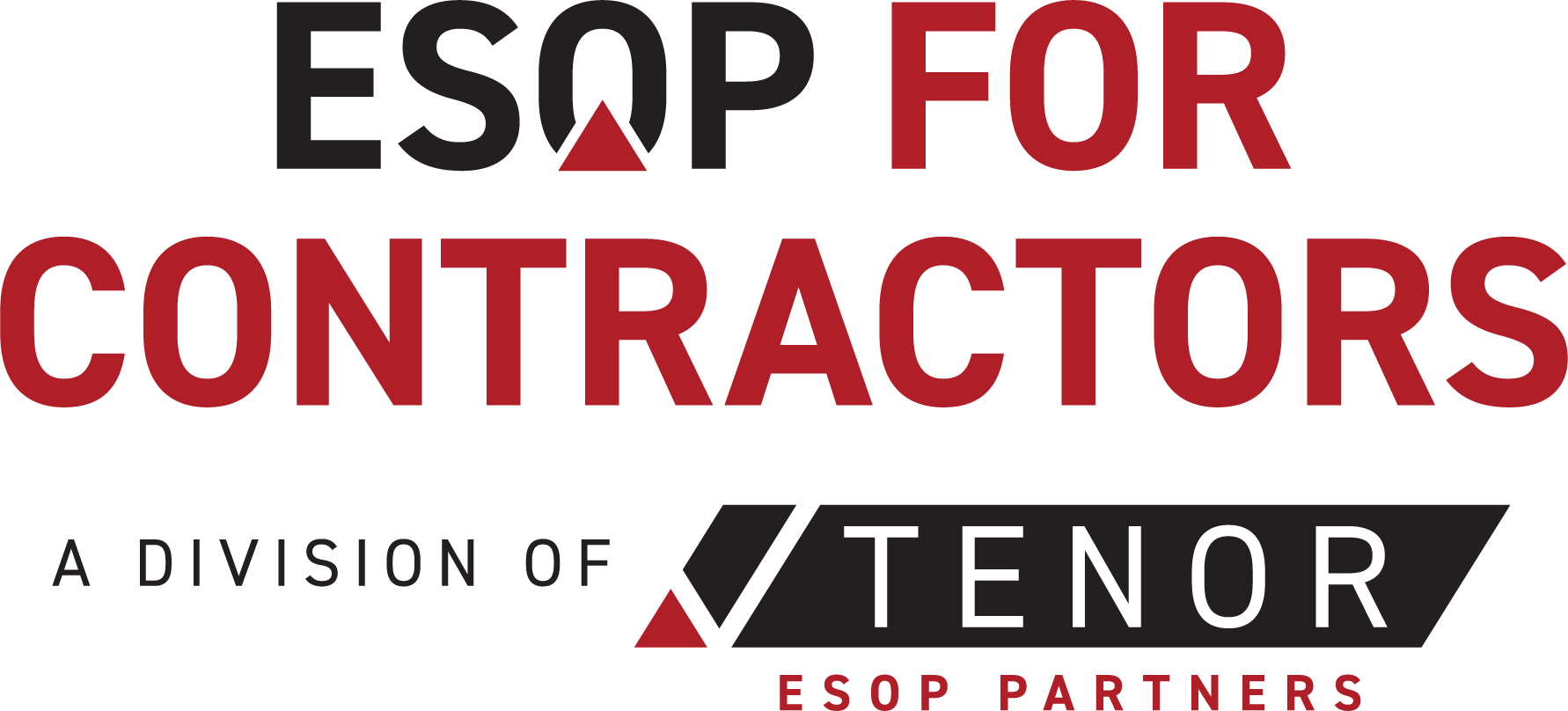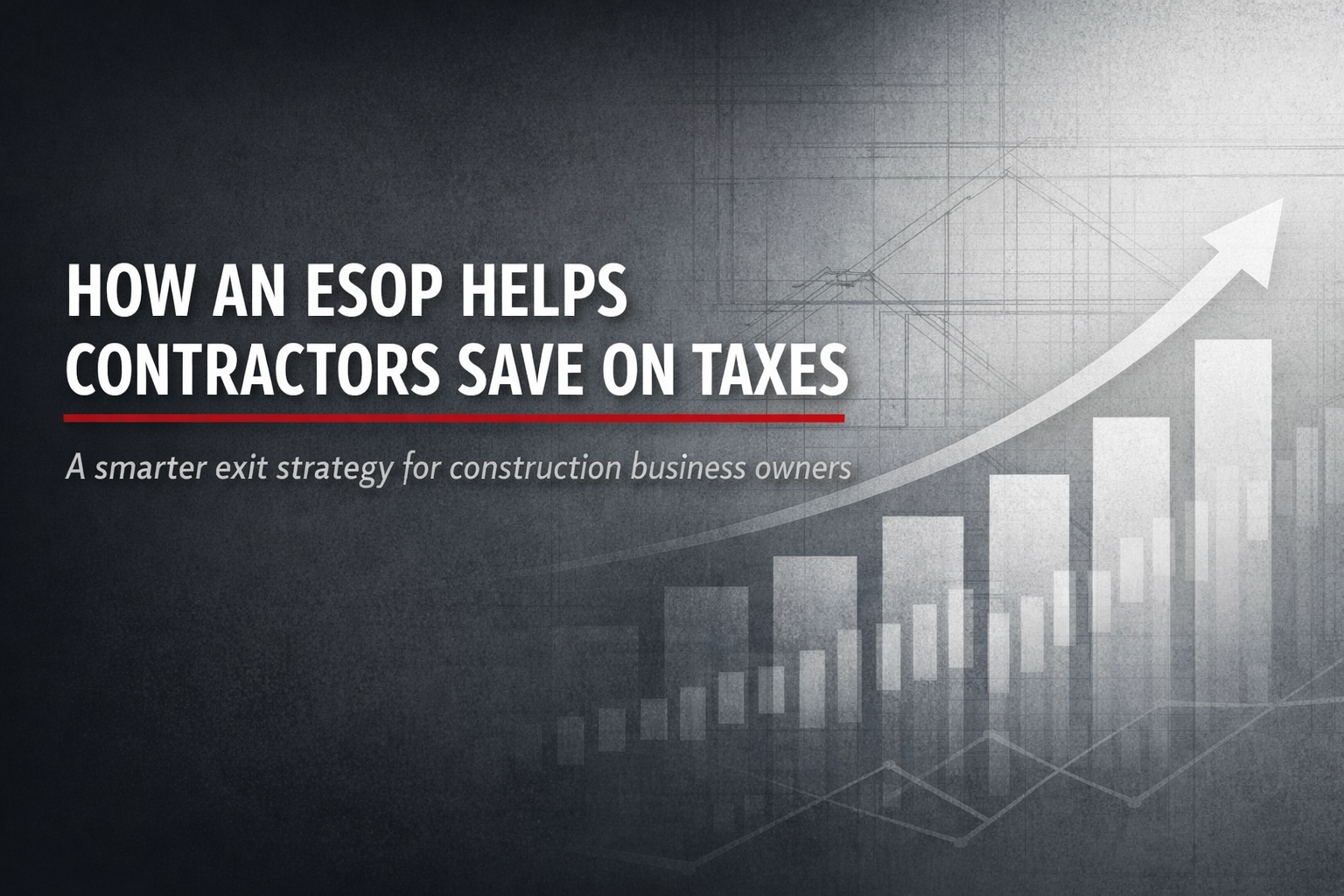Time to read: 5 minutes
What Construction Owners Need to Know About ESOP Financing in Today's Market
If you're a construction business owner considering an ESOP, one of your biggest questions is probably about financing. How hard is it to get a loan? What do banks look for? What makes construction companies different from other borrowers?
Holly Sims, Director of ESOP Lending at Georgia Banking Company, and André Schnabl, founding partner at Tenor ESOP Partners, recently shared their expert perspectives on these exact questions. With over 100 ESOP transactions completed, their insights reveal what's really happening in today's ESOP financing market.
Banks Actually Love ESOP Deals
Here's something that might surprise you: lenders view ESOPs as highly attractive assets. Employee-owned companies demonstrate superior financial stability compared to traditional businesses, making them preferred lending targets.
Why banks like ESOP loans:
- Exceptionally low default rates
- Strong operational performance after conversion
- Enhanced cash flow through tax benefits
- Motivated workforce driving better results
The baby boom generation retirement wave is creating unprecedented succession planning needs. Approximately 50% of current ESOP deal flow involves construction-related businesses, reflecting the industry's continued strong performance and succession planning needs.
What Banks Expect From You Today
ESOP financing requirements have evolved significantly:
Full Relationship Banking
Lenders now typically require complete banking relationships, including both lending and depository services.
Working Capital Lines
Banks strongly recommend establishing working capital lines of credit concurrent with term debt. These lines provide essential liquidity management during economic cycles.
Debt Consolidation
Lenders often recommend refinancing 75% of existing equipment and asset financing to simplify debt management and improve cash flow forecasting.
How Construction Companies Get Evaluated
ESOP financing emphasizes different criteria compared to traditional commercial lending:
Cash flow takes priority. ESOP loans are fundamentally cash flow transactions, with lenders focusing primarily on business performance sustainability rather than asset coverage alone.
Experienced ESOP lenders understand contractor-specific factors including progress billing receivables structures, bonded versus unbonded work implications, and the differences between general contractor and subcontractor risk profiles.
Asset-heavy businesses have advantages. Companies with substantial equipment or real estate holdings can support higher leverage ratios, as tangible assets provide secondary repayment sources beyond cash flow.
Real Estate: A Smart Strategic Move
Including real estate in ESOP transactions provides multiple advantages:
- Enhanced collateral for increased leverage capacity
- Longer amortization periods reducing debt service burdens
- 1042 capital gains deferral opportunities
- Improved employee perception through complete asset inclusion
When employees see that all company assets benefit them as owners, it reinforces the legitimacy of the ownership transfer.
Construction-Specific Challenges and Solutions
Contractors face unique financing challenges:
Bonding and Surety Coordination
Surety company input early in the financing process proves essential. Bonding requirements significantly influence acceptable leverage levels and balance sheet structures.
Banking Size Matters
Regional and community banks often provide more flexible approaches and better terms for middle-market ESOP transactions than large institutions.
Industry Knowledge Pays
Construction-focused lenders understand industry dynamics, seasonal cash flows, and project-based revenue recognition, enabling more appropriate loan structures.
Financing Options: Leveraged vs. Self-Financed
You have more flexibility than you might think:
The 80/20 Rule: Approximately 80% of ESOP transactions utilize some level of third-party financing, while 20% remain self-financed through seller notes.
Timing Flexibility: Some transactions close initially with seller financing, then pursue bank financing after operational dust settles.
Why ESOP Banking Expertise Matters
Not all banks understand ESOPs:
Balance sheet changes: ESOP transactions fundamentally alter company balance sheets, requiring lenders who understand these changes and their implications.
Performance recognition: Historical data demonstrates that ESOP loans perform better than traditional commercial loans, reflecting the enhanced financial stability of employee-owned companies.
Transition support: Banks with ESOP expertise provide comprehensive back-office support during banking relationship transitions.
The Current Market Reality
Despite broader market volatility, the ESOP financing landscape remains robust. Market volatility actually increases ESOP activity as business owners recognize the concentration risk of having their primary wealth tied up in their companies.
Getting Started on the Right Foot
For construction business owners considering employee ownership, the current lending environment offers attractive opportunities through lenders who understand both ESOP structures and industry requirements.
The key lies in working with advisors and banks who bring deep expertise to the complex intersection of employee ownership, construction operations, and commercial financing. Don't try to navigate this alone with a banker who's never done an ESOP transaction.
The financing is there for qualified construction companies. The question is whether you're working with the right team to access it successfully.
How to get started
Getting started with an Employee Stock Ownership Plan (ESOP) can transform your contracting business, unlocking potential for growth and ensuring lasting value for everyone involved. At ESOP for Contractors, we understand the intricacies of the process, from assessing your company's current status to designing a tailored ESOP that aligns with your goals.
Our leadership team knows firsthand how to create winning strategies that benefit both owners and team members alike. If you're curious about how an ESOP could enhance your business's future, we invite you to reach out for a free consultation. Let’s explore how we can help you achieve sustainable success together!

Gary Gray, Founder
Book a Free Consultation
Interested in a free consultation for your contracting business? Send us a message - We’re here to help.















